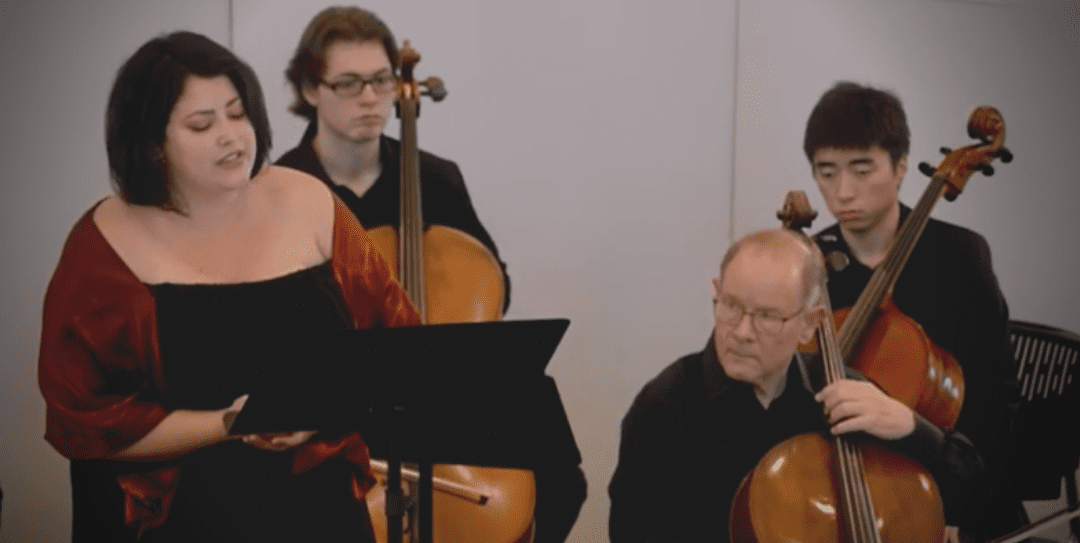Don’t tell the secrets of the night in the poems of the day.
That was the scandalized reaction, soprano Angel Azzarra tells us, to Maurice Ravel’s controversial Chansons madécasses (Songs of Madagascar), particularly the first of the three songs titled Nahandove. Our singer sets the scene: “A man the awaits the beautiful maiden Nahandove, who is meeting him in the moonlit forest. As the lovers alternate between languorous caresses and frenetic passion, so too does the music move into and then away from tonality. As Ravel himself said, ‘It’s not quite Schoenbergian, but I don’t think I could have written the Chansons madécasses without having heard [Arnold] Schoenberg.'”
Nahandove was the first of a pair of moonlight-inspired works Angel shared from the Heifetz stage in Sunday Matinee appearance in the summer of 2021. She’s joined here by faculty cellist David Geber, pianist Jingxuan Zhang, and Artistic Director Nicholas Kitchen, performing Ravel’s flute part on his violin.
Nahandove, ô belle Nahandove!
L’oiseau nocturne a commencé ses cris,
la pleine lune brille sur ma tête
et la rosée naissante humecte mes cheveux
Voici l’heure ; qui peut t’arrêter,
Nahahndove, ô belle Nahandove!
Le lit de feuilles est préparé
je l’ai parsemé de fleurs et d’herbes odoriférantes;
il est digne de tes charmes,
Nahandove, ô belle Nahandove!
Nahandove, oh beautiful Nahandove!
The night bird has begun to sing
the full moon shines overhead,
and the first dew is moistening my hair.
Now is the time: who can be delaying you?
Oh beautiful Nahandove!
The bed of leaves is ready
I have strewn flowers and aromatic herbs;
it is worthy of your charms
Oh beautiful Nahandove!
(Read the full text and translation here)
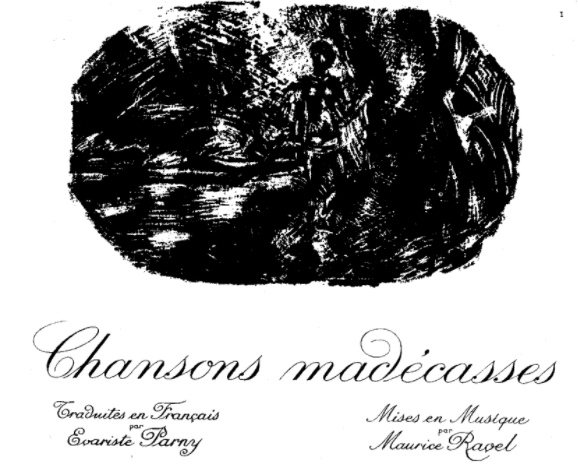
Dating from 1925, Maurice Ravel’s Chansons madécasses are settings of poems – supposedly rooted in the far-away former French colony of Madagascar by the 18th-century poet Évariste de Parny, born on the neighboring French colony of the Isle of Bourbon (now Réunion) in the Indian Ocean. “It is a sort of quartet in which the singing voice plays the role of principal instrument,” Ravel wrote of the cycle. “Simplicity reigns, [as does] the independence of the voices.”
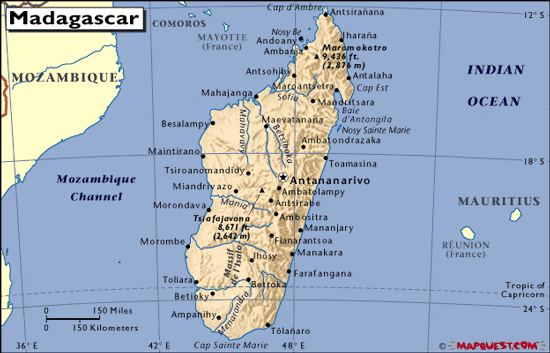

The Francophone nations of Madagascar and Réunion, along with the neighboring islands of Seychelles, Mauritius, Comoros and Mayotte, are now collectively known as the “Vanilla Islands,” a nod to the exotic spices native to the region.
Angel’s moonlit mini-recital then moved on to the evocative Ária from the Bachianas Brasileiras No. 5, easily the most famous of the more than 1500 compositions by Heitor Villa-Lobos. Far less well known is that the first to sing it was the author of the text: Brazlian poet and soprano Ruth Valadares Corrêa, who introduced this Bachianas to the world in 1938.
For this #Heifetz2021 performance Angel is joined by faculty cellist Antonio Lysy and seven cello students at the 2021 Heifetz Institute: Yan Ho Chang, Caroline Paulsen, Nicco Mazziotto, Joan Herget, Boubacar Diallo, Roric Cunningham, and Davis You.
Surge no infinito a lua docemente,
Enfeitando a tarde, qual meiga donzela
Que se apresta e a linda sonhadoramente
Em anseios d’alma para ficar bela
Grita ao céu e a terra toda a Natureza!
Cala a passarada aos seus tristes queixumes
E reflete o mar toda a Sua riqueza…
Suave a luz da lua desperta agora
A cruel saudade que ri e chora!
Tarde uma nuvem rósea lenta e transparente
Sobre o espaço, sonhadora e bela!
Evening, a rosy, translucent cloud,
slowly crosses the drowsy, beautiful firmament!
The moon gently rises into infinity, adorning the evening,
like a sweet maiden dreamily getting ready,
making herself beautiful, desiring her soul to be beautiful.
She calls to the heavens, the earth, to all of Nature!
She silences the birds’ melancholy laments,
and the sea reflects all her treasures…
Softly the moon awakens, a cruel yearning which laughs and weeps!
Evening, a rosy, translucent cloud,
slowly crosses the drowsy, beautiful firmament!
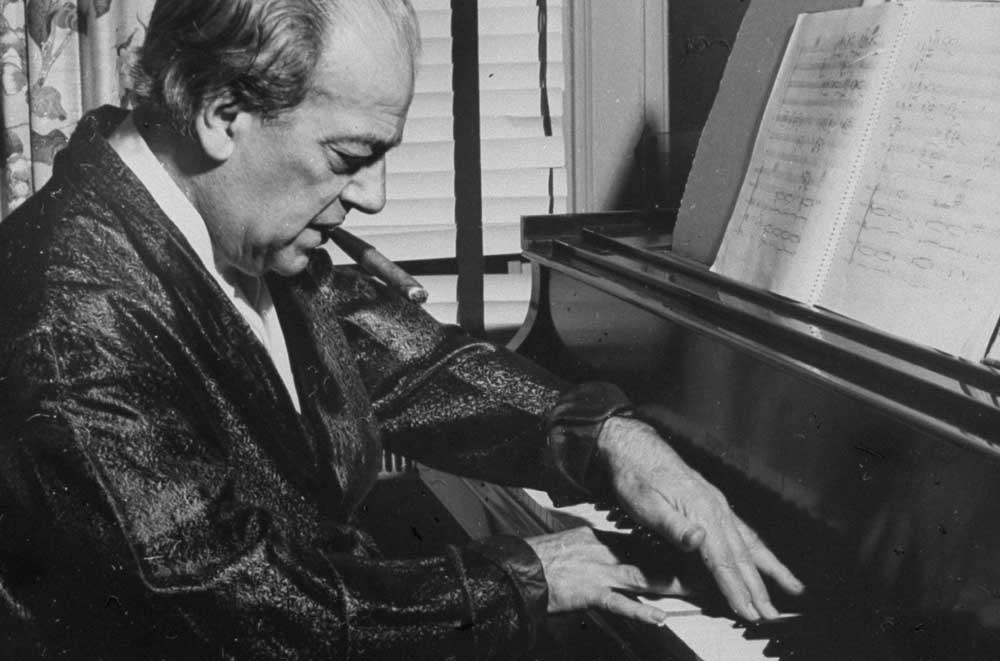

Brazilian composer, conductor, cellist, guitarist and pianist Heitor Villa-Lobos (1887-1959). Of his nine Bachianas Brasileiras works written between 1930 and 1945, the composer, in Leonard Bernstein’s words, “brought together his native folklore elements with the great European musical tradition of Bach, and unified them into a single style of his own, as he does in the very title of this piece.”
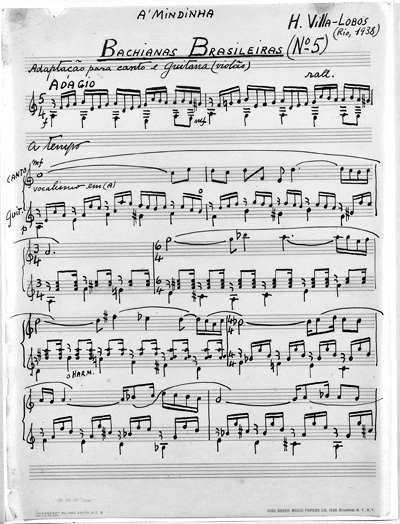

Bachianas Brasileiras No. 5 was so instantly popular that Villa-Lobos created versions for soprano and guitar (pictured above) as well as with piano.


